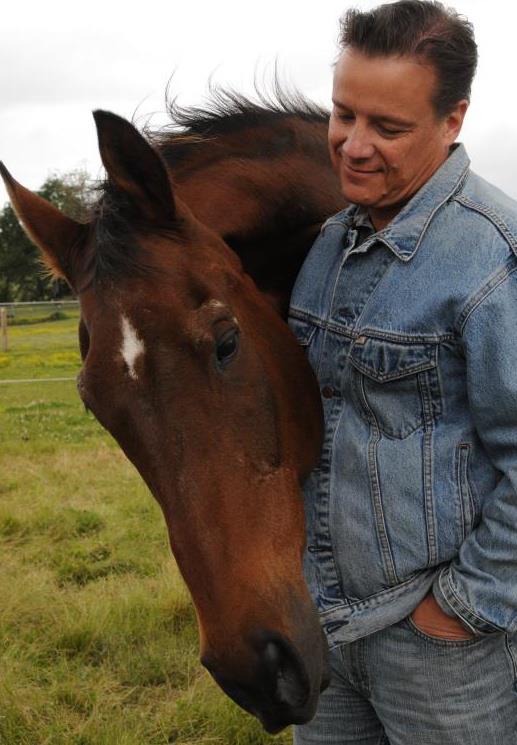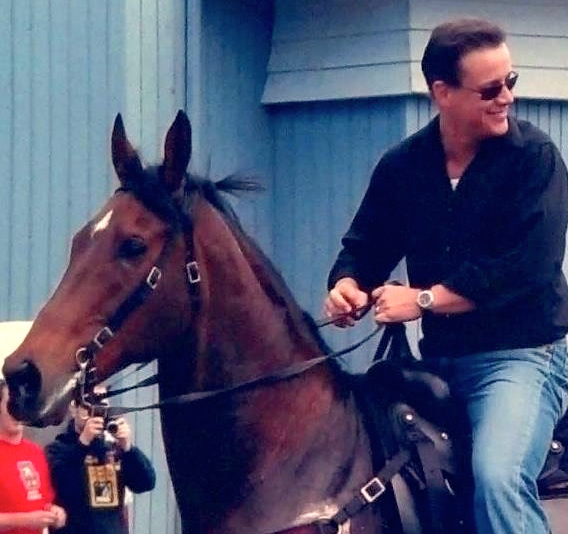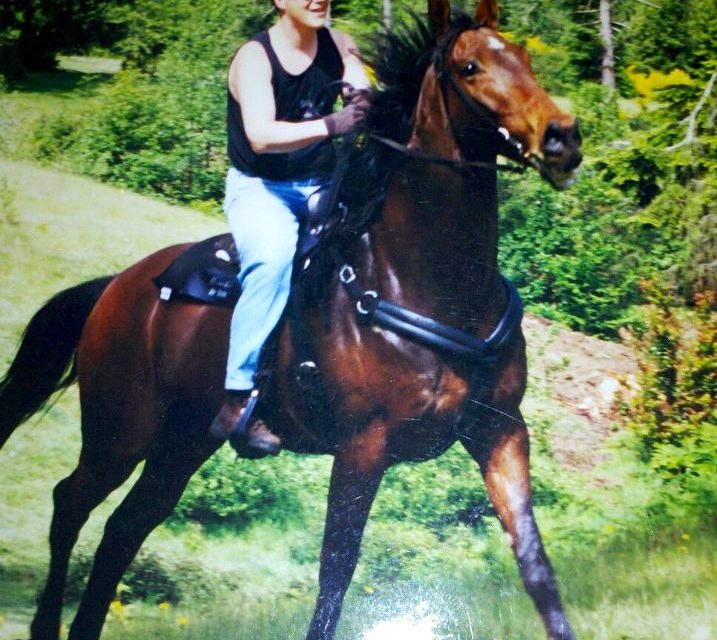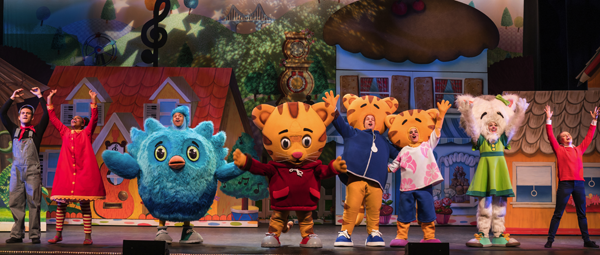(Readers of Eugene Scene are welcome to submit their own “slice of life” essays by email to hurrahforarts@gmail.com for possible publication on eugenescene.org; accompanying photos should be attached as large jpg files)
By Scott Beckstead
Although I’ve been riding horses since I was born, riding Cheyenne was a very different experience for me. I had ridden other horses with plenty of “go,” but Cheyenne was something else.
He came to me and my wife, Jackie, badly abused. His previous owner (a client of mine) discovered him at a dude ranch in Arizona, snubbed to a post by an old cowboy who was working him over with a two-by-four to turn him into a “dependable riding animal.”
My client bought him on he spot and brought him to Oregon. When he tried riding him for the first time, Cheyenne tossed him hard, sending his new owner to a three-day stay at the hospital. He never tried riding him again, and Cheyenne spent the next three years of his life in a pasture with little to no human contact.
When I met him, he regarded me with a look of cold disdain, a look almost intended as a challenge.

He wasn’t exactly hostile, but he let me know he did not wish to be friends. It took three weeks before he would allow me just to stand quietly by his side.
He was big, bold, and athletic, and hard-wired to compete. With those ridiculously long legs, he wasn’t very good at pole bending or barrel racing, but he relished those games and play days, and clearly understood what it meant to try to win.
On the trail, it was impossible for lesser horses to keep up with him (although once we went out with a Tennessee Walker who gave him a run for his money). On every trail ride he demanded to be in the lead. When I led the Waldport Beachcomber Days parades as mayor on his back, he carried himself with such fierce nobility that I truly believe he thought the parade was for him.
Jackie and I loved extreme trail rides on Cheyenne and Dickens, climbing, exploring, making new trails, and we have enough stories of our adventures to fill a book.
It was on the beach, though, where I let Cheyenne do the one thing he loved above all else — run as fast as he could. With nothing but miles of flat, hard beach ahead of him, I could simply lean forward and give him the reins. The surge of power as he dug in and rocketed forward always took my breath away.
For about a mile it was a headlong sprint, with his mane whipping my face and the tears streaming from my eyes. I rode him with my stirrups a bit too short so I could stand and let his body move freely beneath me. After a mile or so, he settled into a long, steady gallop that swallowed the ground beneath us in huge strides, a steady, three-beat cadence that lasted for mile after mile.
And when I finally asked him to slow and come to a stop, he was barely winded and hadn’t so much as broken a sweat. So I would turn him around, and he would immediately explode into another sprint, then settle again into that long, effortless gallop.
In those moments, Cheyenne and I became one in spirit, in a way that only other horse people will understand. In those moments, I knew complete freedom and an exhilaration unlike anything I’ve ever known.
I didn’t learn until several years after we adopted him that when he was born, Cheyenne was given the name “Scotty’s Wings” by the breeder who brought him into this world. On that beach, and on all those dashes through deep timber and across open meadows in the hills above Waldport, I realized that Cheyenne had come to me for a reason and with a purpose — and I to him. We brought out the very best in each other. I honored who he was as an individual, and he did the very same for me.
It was “Scotty’s Wings” for us both.

About Scott Beckstead: Scott Beckstead grew up in southern Idaho on a small family farm. He graduated from the University of Utah School of Law in 1991. He worked for a small firm on the central Oregon coast for three years and established a solo practice in 1994 in Waldport, which he maintained for 15 years. He served as mayor of Waldport from 2002 to 2007. He has taught animal at the University of Oregon School of Law and Willamette University College of Law and co-authored the first textbook on the subject.
In 2008, Beckstead became the Oregon director of the Humane Society of the United States (HSUS). His first task with HSUS was to help establish the large Duchess Sanctuary in Douglas County which has rescued nearly 200 abused, neglected, and abandoned horses.










